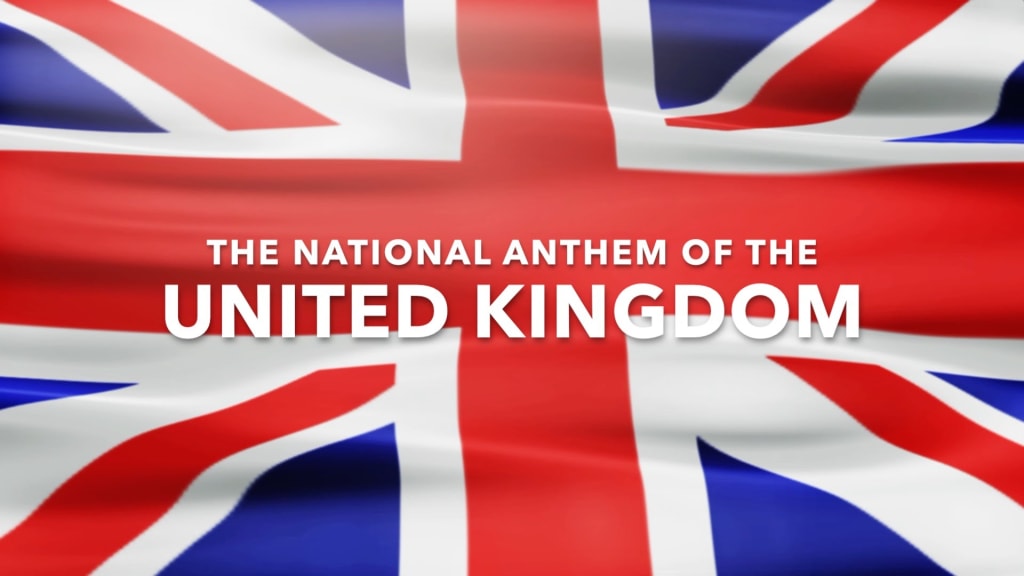Should the United Kingdom change its national anthem?
Would "Jerusalem" be better than "God Save the Queen"?

There are two aspects that need to be considered when comparing potential and actual national anthems, namely the words and the music.
Let’s think about the words first. “God Save the Queen” (which is “God Save the King” when there is a male sovereign) dates back to the 18th century, although there is some doubt as to when it was first written. There have been changes to the verses, with some being added and later removed from the official version. However, in essence it is a prayer for the protection of the sovereign and only indirectly for the country as a whole. It says nothing about the country itself, nor is it a call to arms, which is the case of many national anthems including those of France, Italy and the United States. It could be said that there is nothing “national” about it at all, except insofar as the nation is embodied by the monarch. Granted, the United Kingdom is a monarchy, but the monarch has become little more than a figurehead as time has advanced, and the question must be asked as to whether our national anthem should reflect this change of emphasis.
“Jerusalem” has been suggested as an alternative. The words were penned by William Blake in 1808 as the preface to his poem “Milton”, and concern the myth that Jesus visited England as a young boy. Inspired by this divine visitation, the poet resolves to fight against injustice and build a “new Jerusalem” in “England’s green and pleasant land”. It is a brilliant piece of poetry, far superior to “God Save the Queen” in that respect, and it is a rousing call to action, as are many national anthems.
But it would never work as the national anthem of the United Kingdom of Great Britain and Northern Ireland. The most obvious reason is that it only talks about England. “And did those feet in ancient time walk upon England’s mountains green?” You could hardly imagine a Scottish or Welsh person singing that line with gusto!
It is also an intensely Christian poem, with the focus being on the supposed visit of Jesus Christ. Many western national anthems are indeed Christian in spirit, but Britain is a multi-ethnic and thus multi-religious country, and a huge proportion of the population would thus feel alienated by having “Jerusalem” as their national anthem. Even the title is alien, despite Blake’s reference to a metaphorical rather than a geographical Jerusalem.
There is also the problem that Britain no longer has any “dark satanic mills” among which the new Jerusalem could be built. The poem was written at a time when the worst excesses of the industrial revolution had created many hells in the form of dangerous and insanitary living and working conditions for many thousands of people. The promise of Heaven has no meaning today, as outlined in the poem, because the context in question has no meaning in the 21st century.
Finally, the poem, as a personal resolve to fight against poverty and oppression within one’s own country, has no place as a national anthem. As a piece of choral singing, surely the emphasis should be on the plural and not the singular? But here we have “Bring me my bow of burning gold, bring me my arrows of desire”, apparently uttered by an individual to someone else, who is presumably acting as a servant and is not expected to be part of the “mental fight” themselves.
Turning to the music, it has to be said that the tune to “Jerusalem”, written by Parry, is greatly superior to that of “God Save the Queen”, the composer of which is unknown. The British national anthem is a boring tune, especially when set alongside such splendid anthems as those of France or Italy. The best that can be said for it is that it is easy to sing.
A national anthem, when played as a tune at such events as Olympic medal ceremonies, other international sports events, and on state occasions, should be instantly recognisable as belonging to one country alone. Apart from the fact that a number of Commonwealth countries use the same tune as the United Kingdom, which would doubtless be the case whatever it was, the tune is also well known in several non-Commonwealth countries. Apart from being familiar to Americans as “My country, tis of thee”, it is also the national anthem of Liechtenstein. This latter circumstance led to the strange event, when England played Liechtenstein at football, of the same tune being played twice before the match started, once for each country!
All the above begs the question as to whether England, as distinct from the rest of the United Kingdom, should have its own national anthem. The fact that Scotland and Wales have national anthems (unofficial in the case of “Flower of Scotland”) but England does not, has led to the slightly farcical situation of the British national anthem being sung when England plays a rugby international against either of those two countries but not when they play each other.
If England is to have a national anthem, then “Jerusalem” becomes more likely in that it does refer to England as such, but it still falls short in respect of the other objections noted above. It is probably more suitable than “Land of Hope and Glory”, which is anachronistic in the extreme, and also British rather then English in tone, but it is still not fit for the purpose. The hunt for England’s national anthem, as opposed to Britain’s, must therefore continue.
About the Creator
John Welford
I am a retired librarian, having spent most of my career in academic and industrial libraries.
I write on a number of subjects and also write stories as a member of the "Hinckley Scribblers".






Comments
There are no comments for this story
Be the first to respond and start the conversation.